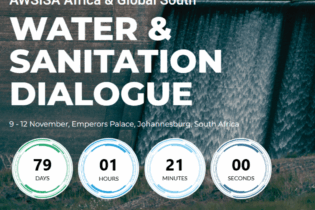Although the world’s water supplies are expected to remain sufficient for a global population of nine billion in 2050, continuing overconsumption and the impact of climate change will diminish their availability in many of the planet’s neediest regions, according to a new United Nations Food and Agriculture Organisation (FAO) report.
The report, entitled “Towards a water and food secure future”, urges government policies and public and private investment to ensure that crops, livestock and fish are sustainably produced in ways also aimed at safeguarding water resources. Without such measures, the report warns, efforts to reduce poverty, increase incomes and ensure food security in many developing nations will become increasingly difficult. “Water, as an irreplaceable element of achieving this end, is already under pressure by increasing demands from other uses, exacerbated by weak governance, inadequate capacities, and underinvestment,” said FAO Deputy Director-General Natural Resources, Maria Helena Semedo.Food needs to stress water supply
FAO statistics note that by 2050 some 60 per cent more food will be needed to feed the world, placing added stress on water supplies as global agriculture rushes to meet that demand.Agriculture is already the most water-intensive industry, accounting in many countries for around two-thirds or more of supplies drawn from rivers, lakes and aquifers.
In addition, the dire straits facing the world’s water situation was recently amplified in the UN’s 2015 World Water Development report, released by the UN Educational, Scientific and Cultural Organisation (UNESCO) and in time for World Water Day, marked each year on 22 March. According to UNESCO, the planet will face a 40 per cent shortfall in water supply in 2030 unless the international community “dramatically” improves water supply management. Demand for water is slated to skyrocket 55 per cent by 2050 while 20 per cent of global groundwater is already overexploited.





